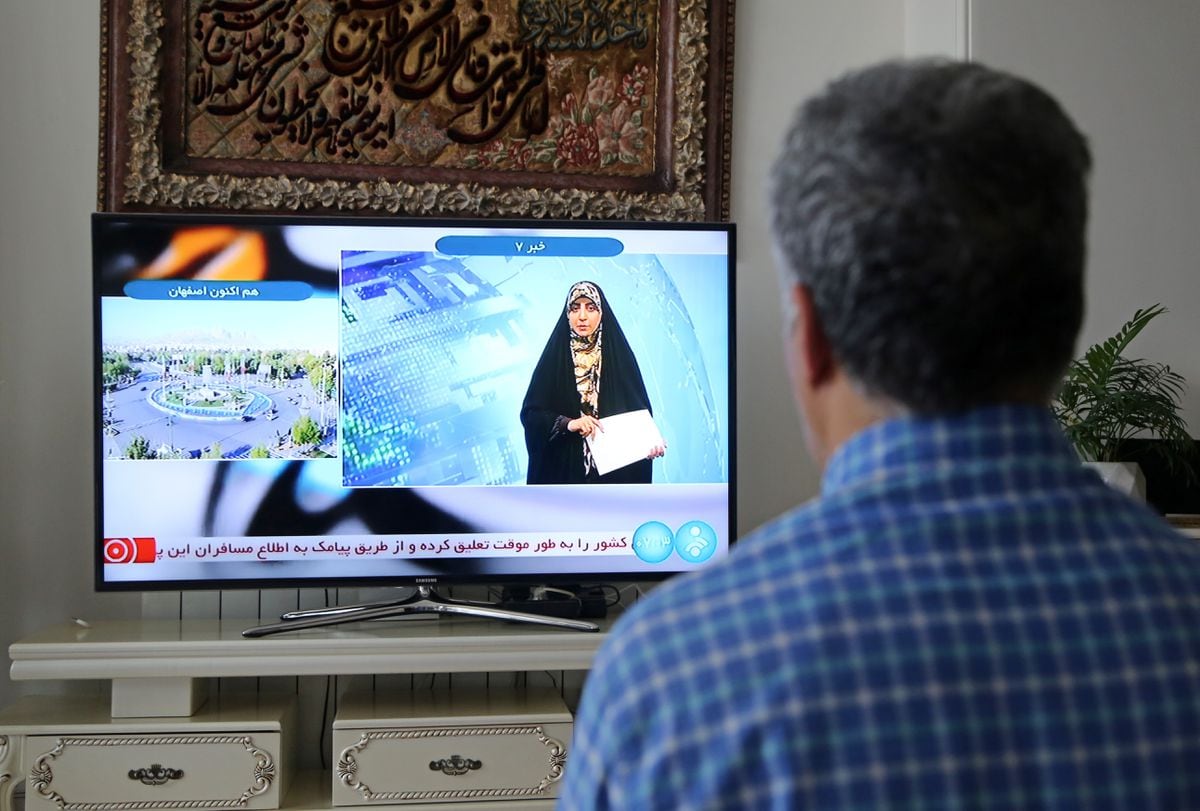Israel attacked targets in Iran early this Friday, five days after the Iranian offensive with drones and missiles against Israeli territory that caused no deaths or hardly any material damage. There is currently confusing information about the scope and nature of the attack. Tehran claims to have destroyed three drones in the province of Isfahan, the heart of the Iranian nuclear program, after activating its defense systems, according to various US and local media. Cited sources used by these same newspapers also report that missiles have also been used in the offensive. Early information suggests that Israel has carried out a moderate retaliation operation amid constant international calls for containment. The International Atomic Energy Agency (IAEA), under the UN, has stated that none of Iran's nuclear facilities have been damaged.
The United States has not participated in an operation that it had been warned about by its ally in the last few hours, according to the Reuters agency. The attack was reported by the American network ABC, citing sources from President Joe Biden's Administration. Israel has confirmed being behind the attack that could have hit a military air base near the city of Isfahan, according to The
New York Times
.
There is no data on possible victims or material damage, although, in principle, no nuclear facilities have been hit nor large explosions have been seen, local media report. Other American media reported on that attack shortly after. It was the official television of the Islamic Republic of Iran that reported the downing of several Israeli drones. The spokesman for the National Cyberspace Center of Iran, Hossein Dalirian, has also assured in a message on .
The Iranian Fars agency had previously reported that Israeli devices had hit near the Isfahan airport and that the anti-aircraft systems had been activated, as well as decreeing the closure, in part and temporarily, of the national airspace. According to the Iranian Airports and Air Navigation Company, cited by IRNA, air traffic in the country has already been restored. Neighbors could see some explosions in the sky that they recorded on video, according to images obtained by the BBC.
Join EL PAÍS to follow all the news and read without limits.
Subscribe
That area, in the center of the country and about 400 kilometers south of the capital, hosts military installations, Defense system factories and, above all, nuclear system facilities such as Natanz, from where Tehran announced in 2007 that it had joined to the club of countries capable of producing nuclear fuel on an industrial scale. The Isfahan Nuclear Technology Center (INTC) is the largest nuclear research complex in Iran and employs approximately 3,000 scientists. The United States and Israel suspect that its facilities host a secret research program to produce atomic weapons, something Tehran denies. Iran maintains that its nuclear program is exclusively for civilian purposes. This place has previously been the target of attacks from Israel.
Military response
Israel had announced in different forums throughout this week that the unprecedented offensive by the Iranian regime last weekend in its territory could not be left without a military response. The launching of hundreds of devices over different Israeli regions has raised the danger of a regionalization of the open war in October with Gaza. Tehran's offensive was a response to the bombing carried out by Israel on the Iranian consulate in Damascus (Syria) on April 1, in which 16 people lost their lives, of which seven were members of the Revolutionary Guard, one of They include General Mohamed Reza Zahedi, the head of the Al Quds Force - the regional branch of that force - in Lebanon.
With Prime Minister Benjamin Netanyahu at the helm, Israel has been calibrating the type and intensity of its response for several days. Amid the threats and the war dialectic of both countries, throughout the week international pressure has grown for containment to prevail. The IAEA had already expressed its fear that a possible Israeli attack would reach Iran's nuclear facilities, according to the head of that institution, Rafael Grossi. The United States on Thursday announced new sanctions against Iran and that country's drone industry and missile program, in a coordinated punishment with the United Kingdom, which has taken similar measures. The European Union has also announced that it will consider imposing similar measures on Tehran.
Meanwhile, in Gaza, where almost 34,000 Palestinians have died since the war began on October 7, Israeli attacks continue, according to the Palestinian agency Wafa. The war began that day with the Hamas massacre, which left some 1,200 people murdered in Israeli territory.
The Israeli army still maintains in the air, despite the movement of troops around the south of the Strip, the incursion into Rafah announced weeks ago. That southern town of the enclave, bordering Egypt and where nearly a million and a half Gazans hit by the humanitarian crisis are crowded, is the only one left for Israeli troops to occupy. Netanyahu insists that this operation is necessary to fulfill two essential objectives of the war: ending Hamas on a political and military level and bringing back the 133 hostages, many already dead, who still remain captive.
_

